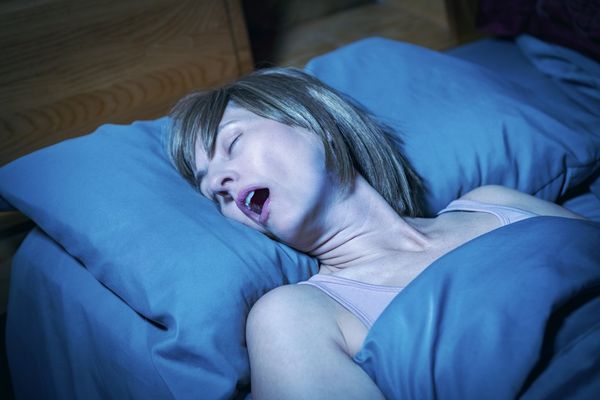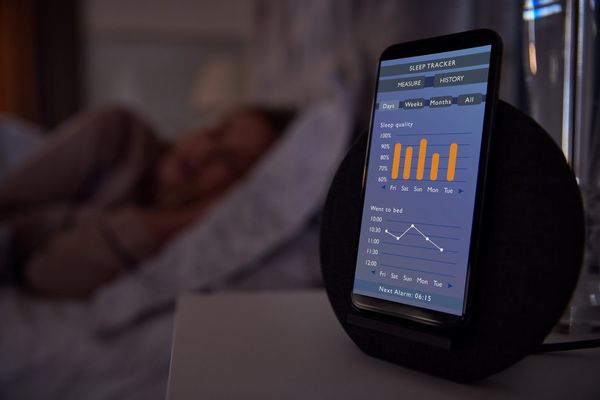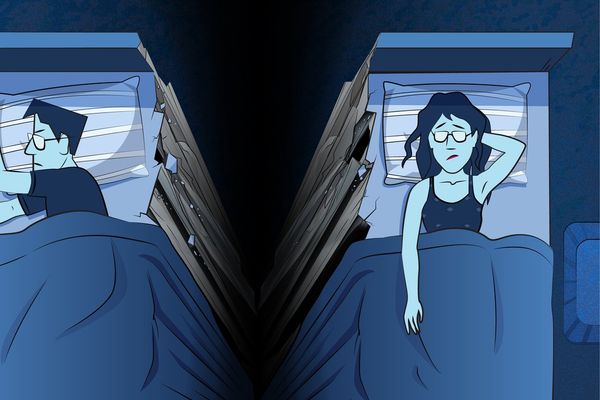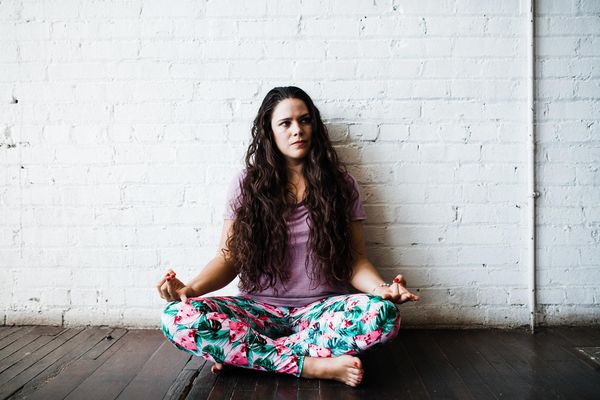When was the last time you got a good night's sleep?
Although you may sleep the seven to nine recommended hours each night, that doesn't necessarily equate to feeling refreshed: 35 percent of Americans report that they're getting only "poor" or "fair" sleep quality, and another 20 percent don't wake up refreshed after a full night's sleep.
And the statistics from the National Institutes of Health are even more alarming: they report that 50 million to 70 million Americans are affected by chronic sleep disorders and intermittent sleep problems. Hardly a sunny scenario for sleep.
Does this all mean we need more sleep? Maybe not.
Or should we blame poor sleep on our health, stress, noise, a snoring partner or drinking too much coffee too late in the day? Maybe not (again).
Chronic sleep deprivation is far-reaching. It is linked to poor health, a weakened immune system and impaired moods, judgment, safety and productivity. If you can't find a reason for your sleep troubles and are looking for an answer to the poor quality or quantity of it, then it may be time to consider a visit to a sleep clinic.
Sleep specialists can help you determine what is getting in the way of a good night's sleep, because they're specially trained in sleep medicine and sleep disorders. Although your primary care physician can begin to evaluate you for some disorders, a sleep specialist is equipped to handle a more extensive assessment and subsequent treatment.
Do you need to see one? The National Sleep Foundation says that if you answer "yes" to any of these questions, a visit to a sleep clinic might be in order:
- Do you frequently have difficulty getting to sleep or staying asleep?
- Do you have a problem with snoring, or has anyone ever told you that you have pauses in breathing or that you gasp for breath when you sleep?
- Are your legs "active" at night? Do you experience tingling, creeping, itching, pulling, aching or other strange feelings in your legs while sitting or lying down that gives you the urge to move, walk or kick your legs for relief?
- Are you so tired when you wake up in the morning that you struggle to function normally during the day?
- Do sleepiness and fatigue last for more than two to three weeks?
Sleep studies usually take place overnight, in a hospital or an independent facility. Ideally, you want the facility to be accredited by the American Academy of Sleep Medicine. To find a list, click here.
What to expect: The overnight sleep study (also known as a polysomnography) is painless and noninvasive. It will record your brain waves, the oxygen levels in your blood, your heart rate, breathing and eye and leg movements. You'll sleep in a dark, quiet and private room, similar to a hotel room, with its own bathroom. It's private in that you won't share it with anyone, other than a video camera: This is placed there so that the technologists can observe your movements while you sleep. There's also an audio system so you can communicate with one another.
You'll be able to sleep in your own PJs (no hospital gowns required) and bring any items you normally use for your bedtime routine. Once you're ready to lie down, you'll be wired with sensors on various parts of your body like your scalp, temples, chest and legs, and your finger or ear will sport a small clip, which monitors oxygen levels in your blood. Sometimes, if sleep apnea is suspected, you'll be asked to try a positive airway pressure, or PAP, machine during the night to test out its effectiveness.
Following the visit, the physician should be able to diagnose your condition and suggest treatment so that you no longer suffer from sleep problems. Treatments may include medications, medical devices such as PAPs or dental appliances to help with snoring. Treatment may also include nonmedical approaches like cognitive behavioral therapy.
And remember, there are so many other things you can do to help sleep better. Lifestyle improvements like improving your diet, adjusting bedtime rituals, reducing your alcohol intake, increasing physical exercise and more can all contribute to getting a better night's sleep.
Good to Know: To be certified as a sleep specialist, a physician must undergo formal training and pass an exam in sleep disorders. To check if your sleep physician is certified, click here or here.







